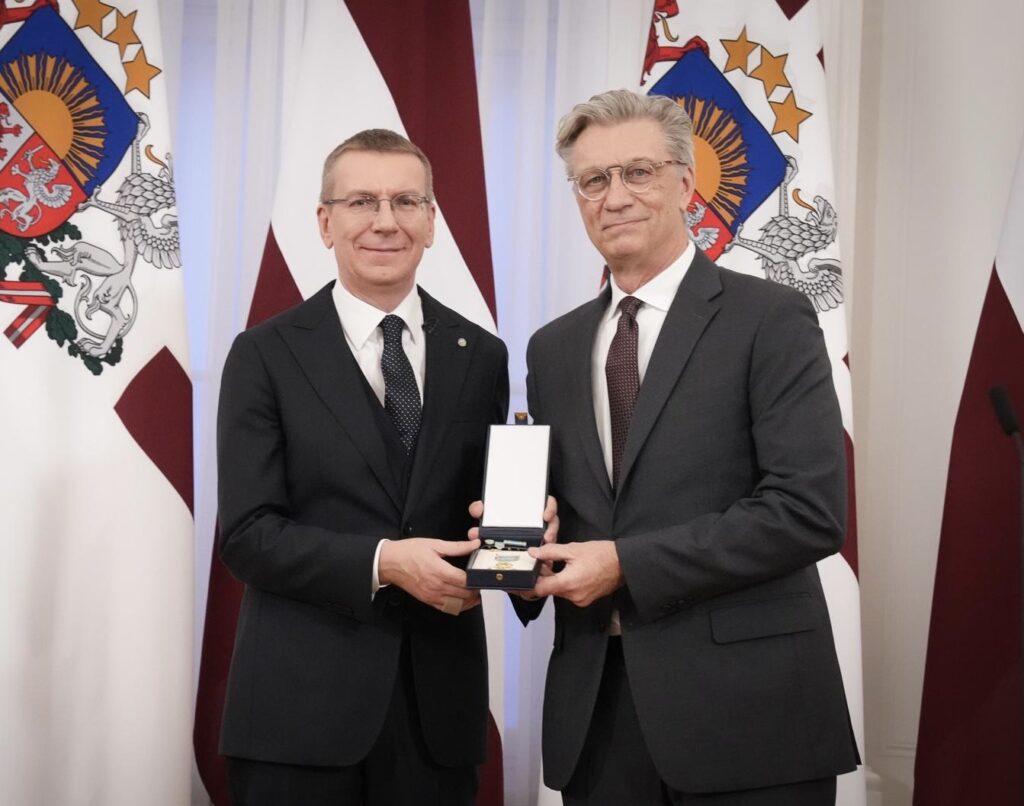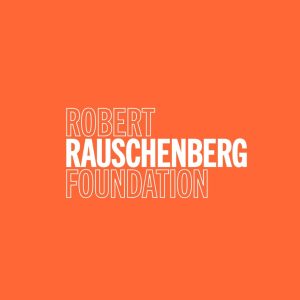In November, Paul Berkolds, co-director of the VoiceArts Program, was awarded the Trīszvaigžņu ordenis (Order of the Three Stars) by Latvian President Edgars Rinkēvičs for Berkolds’ lifetime dedication to promoting Latvian culture in the diaspora. The ceremony took place at the Presidential Palace in the capital of Riga, followed by a large concert in which Berkolds was the guest of honor.
First established in 1924 in remembrance of the founding of Latvia, the award is the country’s highest civilian honor that’s usually bestowed upon Latvian citizens for extraordinary humanitarian or cultural work. Though Berkolds is not a Latvian citizen, his parents were immigrants from Latvia, and he has spent his entire life sharing the musical traditions from their homeland.

“My parents fled the Eastern Bloc after World War II to escape the communists,” Berkolds said during a recent phone interview. They settled in Seattle with a number of Latvian expats who gathered together to build community centers and churches as a way to preserve their own culture, including folk dancing and choral traditions. “There is a massive choir tradition in Latvia,” Berkolds added, recounting that the Latvian Song and Dance Festival in Riga boasts a mega-choir of 16,000 singers. Baltic song festivals are recognized as one the UNESCO Masterpieces of the Oral and Intangible Heritage of Humanity.
Growing up as an American Latvian (“a hybrid between the two cultures”) Berkolds began learning and performing folk music at Latvian schools and summer camps. He immersed himself in both folk traditions as well as Latvian classical music. Over his career, Berkolds’ Latvian projects have included concert performances, choir directing, music festival organization, and teaching both in Latvia and in the US.
While at the University of Washington and the Thornton School of Music at the University of Southern California, where he received his master’s degree and doctorate of Musical Arts in Voice respectively, Berkolds also avidly studied contemporary music. He’s active in Southern California’s new music scene, performing at the Los Angeles Philharmonic’s Green Umbrella Concert Series, Monday Evening Concerts, Jacaranda Concerts, and with the Partch ensemble, where he was the featured soloist on the Grammy-winning CD Plectra and Percussion Dances, and with The Industry in its acclaimed production Hopscotch.
Berkolds’ operatic roles include Escamillo (Carmen), Figaro (Le Nozze di Figaro), Don Basilio (Il Barbiere di Siviglia) and Colline (La Bohème). His musical theater roles include El Gallo (The Fantasticks), MacHeath (Threepenny Opera), Don Quixote (Man of La Mancha), and—for three years on the third national tour of Phantom of the Opera—the Auctioneer, Don Attilio, Passarino, and Firman.
“As the world became more globalized, and then coming to CalArts, these two worlds [Latvian and classical contemporary music] started to come together,” he said. Berkolds founded the Baltic Ensemble at CalArts more than 12 years ago; and in 2012, he brought a 10-day series of master classes on the avant-garde composer John Cage to Riga with CalArts Music faculty Jacqueline Bobak and composer, sound designer, and educator Mark Bobak. “He has done enormous work to extend Latvian culture outside of Latvia,” noted Jacqueline Bobak in an email about her friend and colleague, “even offering courses here at CalArts on music from the Baltics and the Baltic Ensemble. Many Latvian musicians have also visited CalArts on Fulbrights and also as guest instructors and visiting artists.”
Berkolds provided 24700 and its readers with an introduction to Latvian music, and he recommended three performances to start, including the 16,000-strong mega-choir; his Los Angeles-based folk group Lāčkāja; and Tango Lugano by composer Dace Aperans and librettist Baiba Rubesa, wherein he plays a 125-year-old Rainis, one of the most notable writers in Latvian history.



